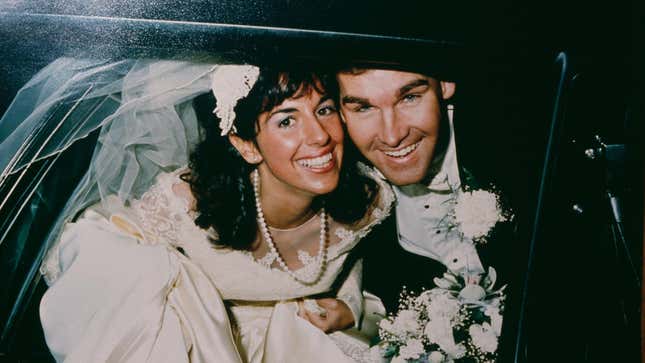
Murder In Boston: Roots, Rampage & Reckoning zooms in on a homicide that took place in October 1989. An obvious yet remarkable takeaway from examining the investigation more than 30 years later, is that it’s a relevant summation of the current political, socioeconomic, and cultural climate. This alone makes the three-part HBO docuseries, which premiered December 4, a vital effort despite some overarching pitfalls. The show can get frustrating, but don’t let that stop you from watching as it unapologetically unmasks the city’s—and by extension, the country’s—issues with endemic racism.
The three episodes feel fragmented, if viewed solely through the true-crime lens. The series doesn’t offer new insights into why exactly (spoiler alert) Charles Stuart killed his pregnant wife, Carol, besides the obvious: marital issues, life insurance policy, etc. The two were driving home from a child birthing class when he fatally shot her, then used the gun to injure himself to avoid suspicion. Charles called 911 (the docuseries opens with this drastic phone conversation) and lied about a Black man carjacking the couple, blaming it all on a person he invented. And barely anyone balked. Without questioning him, authorities went on a devastating manhunt for a made-up culprit, causing innocent people to suffer very real consequences.
The docuseries devotes only part of its final hour to critical aspects like Charles’ motive, accomplices, relationship history, and family background. It’s difficult to gauge these angles with both Charles and Carol deceased, but Murder In Boston doesn’t effectively explore them in other ways either. It makes the whole thing feel unsatisfactory. Then again, it’s clear we aren’t operating on a gripping true-crime level anyway—we’re going deeper than that.
Directed by Jason Hehir (The Last Dance), Murder In Boston tries to dig into the circumstances after Carol’s death, like the immense media attention and pressure, and how the police harassed and attacked Boston neighborhoods with a heavy Black population like Mission Hill and Roxbury. Interviews with cops, journalists, politicians, residents, and various family members dissect the prevalent racial bias in the city’s government and legal system that allowed Charles to get away with his crime for months. To say the nitty gritty details will leave you infuriated is an understatement.
The series, especially it its premiere, does a nice job of focusing on—and explaining—Boston’s history of racial prejudice, including inciting events like the 1974 school desegregation ruling. It helps paint a vividly dark portrait of why Charles probably assumed he’d go scot-free if he tried to pin it on a fictional human being. The other two installments dwell on a horrifying one-track attempt to find Carol’s killer, which resulted in several violent incidents transpiring in the wake of Charles’ false accusations.
A trigger warning is also necessary: Murder In Boston gets graphic. It repetitively drops in footage of the paramedics and officers arriving on scene to find Carol’s corpse in the car, Charles being hauled into the ambulance on a stretcher, and doctors working on him while he keeps muttering a version of the phrase “shot my wife.” It’s gruesome and nauseating. There’s also footage of Charles’ limp body being recovered from Boston’s Mystic River. (He committed suicide in January 1990 once the truth was finally revealed.) If you are able to stomach it, Murder In Boston is worthwhile because it has access to these gut-wrenching events on tape. Unlike a true-crime podcast or first-hand accounts, it hits harder, which seems to be the goal. This also applies to archival footage of interviews with the mother of Willie Bennett, who was wrongly accused and arrested for Carol’s murder. Their home was raided and torn apart. And it’s heartbreaking.
Murder In Boston is a damning indictment of how the system tragically failed Willie Bennett, his family, the city’s Black community, and Carol Stuart and her child, who was born in the hospital post-shooting but lived only for 17 days. As ESPN reporter Howard Bryant puts it in the doc: “Getting the Black guy was more important than getting her killer.” The people featured agree and admit it with remorse, including reporters like The Boston Herald’s Michelle Caruso, lawyers, and mayoral advisors. The exception, to a degree, is retired cop Bill Dunn. The only officer involved with the case who agreed to appear in the project, he basically refuses to admit the problem of the botched investigation.
In fact, in his closing statements, he talks about missing the city as it once was, when the cops were allowed to do what they wanted. Murder In Boston makes the case, over and over, that this is an aggravating, dangerous, counter-intuitive, and ridiculous idea—in that particular city and beyond, both then and now.